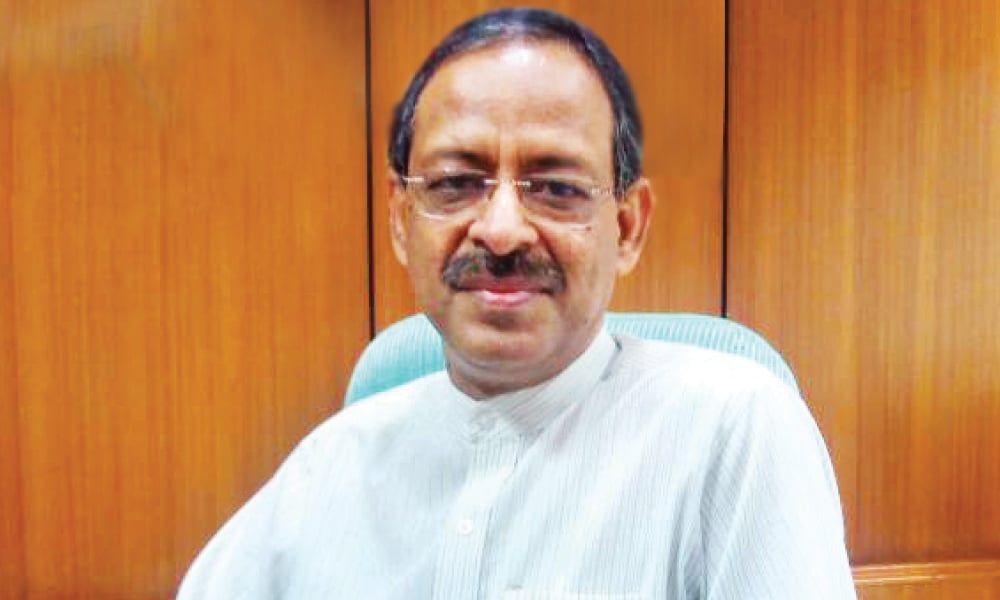
Digitisation is important from school education perspective. Along with it, skilling the youth and training the teachers appropriately are required to refi ne the school education practices in India, says Anil Swarup, Secretary, Department of School Education and Literacy, Ministry of Human Resource Development, Government of India, in an interview with Gautam Debroy of Elets News Network (ENN).
The Government of India is emphasising on Digital India, how are you implementing the concept of Digital India in your department?
First of all, we have dispatched all the fi les and papers in the ministry. Everything has been digitised. So, we don’t have fi les and papers and every proposal moves on an electronic fi le. As everything has been digitised, so everything has been electronically handled within the department. Secondly, we are trying to use a lot of technology in the fi eld to see how education can be delivered through it. A number of steps are being taken, an electronic platform is being created to provide teachers’ education. Similarly, NCERT has digitised all its material that is available online for students. For delivering education in schools, initiative is being taken to use tablets, computers and smart screens. These are the ways how we are trying to digitise the school education segment.
Is digitising school education being followed across the country or in a particular State?
It cannot be done in one go in all the schools. There are more than 15 lakh schools in the country, so it can’t be implemented immediately. But selectively, it is being done in a few schools and gradually it will be taken to other schools as well.
With Central Government’s emphasis on bringing rural and urban areas at par, what initiatives have been taken to promote school education, especially in the rural areas?
Similar facilities are being provided in the schools located in urban areas and rural areas. We do not discriminate between schools in urban and rural areas in terms of providing infrastructure related facilities.
From June onwards you are going to initiate Central Curriculum Assessment, what is the motivation behind this decision?
We are doing an assessment. The Right to Education Act provides that there should be learning outcomes on the basis of which we should determine, how much a child has been able to learn so far. We have been providing lots of inputs but how much a child has learnt was not determined through the specifi c learning outcomes. Now, these learning outcomes have been announced. Post announcement, we are going to conduct a national assessment survey through which we are going to assess the students of class 3, 5 and 8 as to how well has the child progressed? So, that is what we are going to do under Central National Assessment Survey (CNAS). By 31st December, we expect to get all the results. It will be rolled out in schools on a random sampling basis. This will help us to fi gure out the bottlenecks for every class and in adopting corrective measures.
What is the signifi cance of skill education in schools?
Skill education is extremely important be cause only through skilling we can nurture a student’s capability of getting a job. Ultimately, whatever he or she learns, it is for a purpose and that purpose can only be served if the student is skilled enough to get a job. Hence, we all believe that vocational training and skilling are very important components of school education.
 For skilling students, it is very important that the teachers train them as per their abilities, has your department undertaken initiatives in this regard?
For skilling students, it is very important that the teachers train them as per their abilities, has your department undertaken initiatives in this regard?
In the context of teachers, a number of steps are being undertaken by the department. The National Council for Teacher Education (NCTE) is working very hard in bringing out a regime, wherein the teachers are appropriately trained before joining the service. What we are attempting to do is that for B.Ed colleges, we are trying to bring an accreditation system. Only the colleges that are accredited by the NCTE will only be allowed to run B.Ed courses.
Parents usually prefer private colleges over government colleges in many States of the country, is there any strategy followed by your department to change the practice?
We are improving the quality of education in government schools and the moment it is done, the children will start returning to government schools. In the States like Bihar and in some parts of Maharashtra, the children are coming back to the government schools as they have managed to improve the quality of education. Since there is no compulsion on where a child should study; only with the help of good quality education, we can attract the students towards government schools.
What are the most prominent challenges in school education segment and how are you trying to overcome it?
One of the major challenges is to have good teachers in schools. Teachers are the fulcrum and we have to improve that aspect. We are trying to provide pre-service training and improve the training process as well. We are trying to improve the process through which a teacher gets selected and to fi gure out a system through which a teacher gets trained.
The other challenge is using technology for teachers to attend the school. As per the presently available data, one-fourth of the teachers don’t go to school. As a pilot project started in Chhattisgarh, tablets are provided to every school and biometric attendance systems are installed to confi rm that a teacher does go to the school.




















